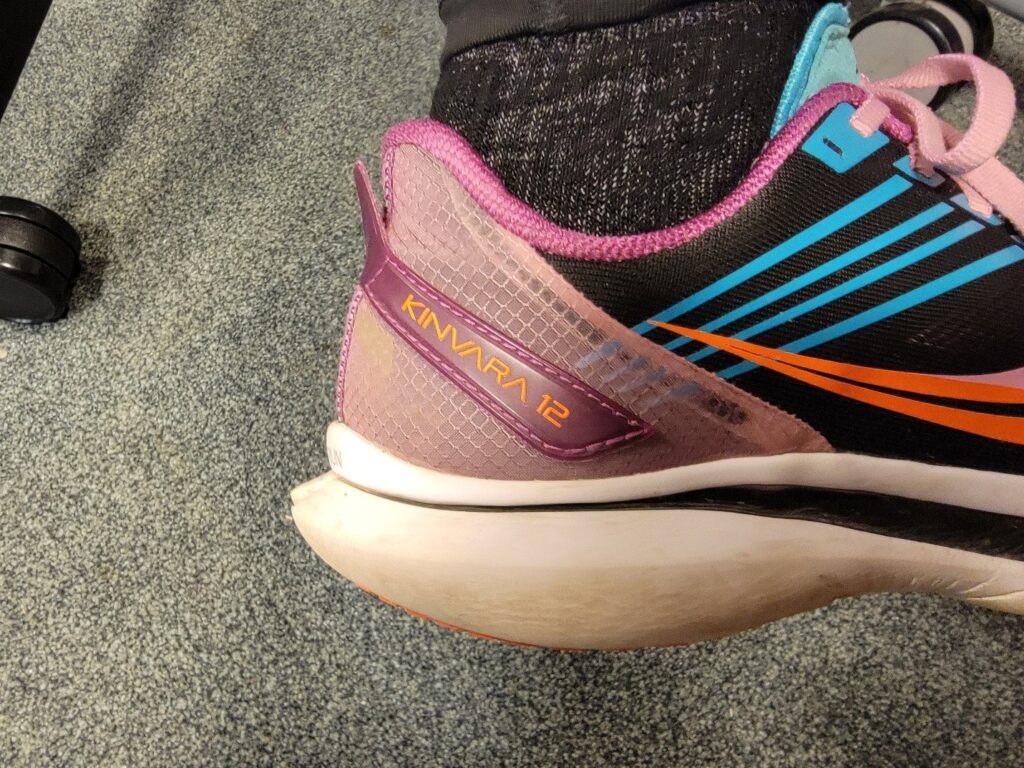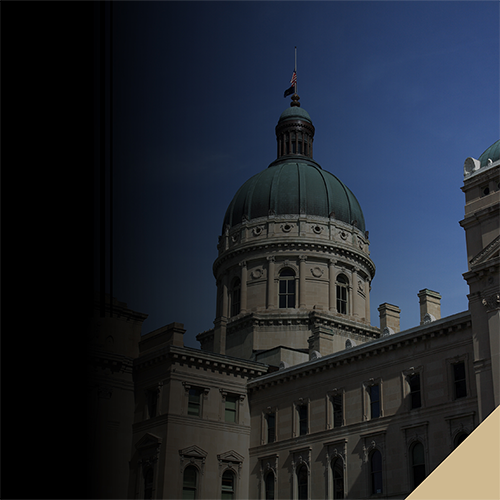We All Come From Somewhere – Part 1
~by Michael Wilcox
Assistant Director and Program Leader for Community Development / Purdue Extension
Associate Director / North Central Regional Center for Rural Development (NCRCRD)
My next two columns are NOT a travelogue. They ARE a love letter to “home.”
Last month I had the privilege of co-leading a Study Abroad to the Republic of Ireland with twelve exceptional Purdue undergraduate students. Along with Dr. Tamara Benjamin and partners from the United States and Ireland, we set off to explore rural development in an Irish context. Never in our wildest dreams did we anticipate what would come next…
The entire trip was initially inspired by Mason Gordon, a recent Purdue graduate and one of my mentees. Mason was a recipient of the prestigious Mitchell Scholarship, a national, competitive scholarship sponsored by the US-Ireland Alliance. Unfortunately, the COVID-19 pandemic cut short Mason’s studies in-country, and he was forced to complete much of his Master’s degree through online instruction and communication with his colleagues at the National University of Ireland – Galway. So we hatched a plan for us to both go to Ireland as a capstone experience.
While rural development was always the subject area, we needed a theme. So I dove into the resources provided by Purdue’s Center for Intercultural Learning, Mentorship, Assessment and Research (CILMAR) and considered the rich (and complicated) history of the Republic of Ireland. The choice was self-evident: empathy. With encouragement from Dr. Aletha Stahl, we settled on intercultural empathy.
Empathy is “the ability to understand and share the feelings of another.” Far too often, we only think of ourselves when we travel. We intentionally wanted to flip the script for the students. To understand rural development in Ireland, they needed to understand the Irish experience. To understand why things “are”, we need to understand how they “came to be.” And we emphasized that “intercultural empathy is about seeing from more than one perspective and acting in a manner that respects the feelings of someone who may have a different perspective” (as Dr. Stahl highlighted for me).
In preparation for our trip, we met with the students three times. Logistics, background material, and introductions. Basic stuff. We asked that they complete two empathy self-assessments (pre-trip and post) and practiced some immersion by hosting one meeting at 9 Irish Brothers. We also worked with the Purdue College of Agriculture’s International Programs in Agriculture (IPIA) office to acquire gifts for our planned speakers. We also added a twist. We asked for twenty-four Purdue key chains – two per student – so they could thank people who enriched their experience and understanding during the trip.
Leaving “home” is never easy. Following the packing list, saying goodbye to loved ones, and ensuring that all of your loose ends are covered or ready to welcome you upon your anticipated return. Most of us had traveled overseas, but a few of our students had never been out of the United States, and one had never been on a plane. It was the first big trip since the pandemic for all of us.
Our journey to Dublin was relatively uneventful. However, the arrival was unforgettable.
We walked off the plane, and the excitement was palpable. When we arrived at Passport Control, the crying was unavoidable. To our right, “EU Passports.” In front of us, “Non-EU Passports.” To our left, “Ukrainian Passports.” There were approximately two dozen people in the left line. All women and children, save for one man (frantically trying to make a phone call). The women looked tired. Some appeared forlorn. The children were occupying themselves, save for one. He was crying uncontrollably. As a parent, I know that there is nothing in the world that leaves you feeling more helpless than not being able to satisfy the needs of your child.
We were stopped in our tracks.
The Irish Garda (Garda Síochána or “Guardians of the Peace”) were doing what they could to make the Ukrainians comfortable and the passport control process fair, formal and tolerable. As for the child, a Garda brought some small items to try and pacify the child and to give his mother some respite.
Our theme was intercultural empathy, and the students were confronted with a real, unvarnished example.
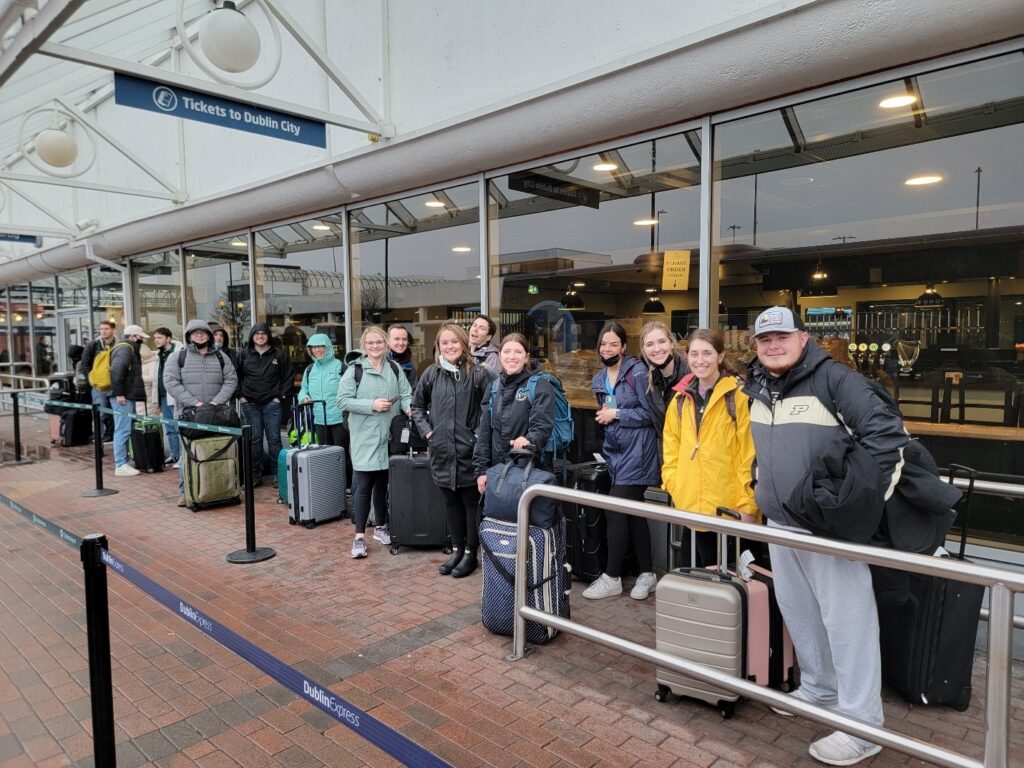
(As I’ve stated, this is not a travelogue, so I will leave out numerous details that might be best left in under other circumstances…let’s have a Guinness, and I’ll tell you the rest of the story sometime…)
The next day, our first stop was EPIC The Irish Emigration Museum in Dublin. Here, the story of the Irish Diaspora is told in pictures, video, artifacts, art, storytelling, music, and dance. Leaving home, in many instances, meant never coming back. An overarching theme was that one of the values that the Irish tended to bring with them was empathy, even when it wasn’t reciprocated in the new community. This is exemplified in a long tradition of the Irish and Irish Diaspora’s involvement in public service and humanitarian efforts across the globe.
Another was that Ireland never left the hearts of those who chose (or were forced) to depart. This makes “home” difficult to define. “We All Come From Somewhere,” but is home where you are “from” or where you “are.” For the Irish, the answer may be both. For the Ukrainians? It is unclear right now.
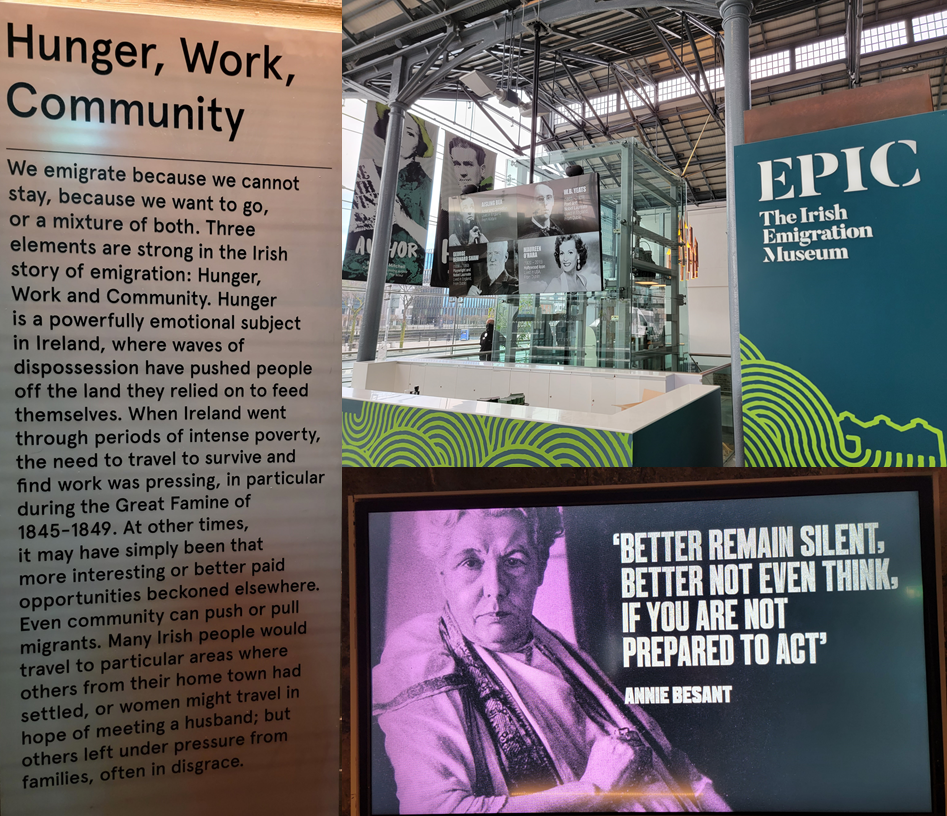
We then visited University College Dublin. Let’s just say that UCD and Purdue have a lot in common, including sharing the innovative spirit that lies within the heart of Kathleen Lonergan Erickson. Kathleen spent many years in our Department of Agricultural Economics, and she is now an Entrepreneurial Specialist at the UCD Innovation Academy. Kathleen had visited with us in West Lafayette, and it was wonderful to see her again in Dublin. We talked a bit about what we were looking for, and Kathleen assured us that she would “take it from here.”
Like Anne Besant suggested in the Emigration Museum quote, Kathleen decided to introduce the students to what innovation might look like in rural development. Where does rural innovation begin?
Empathy.
If we are to employ design thinking to bring innovation to rural development, we need to “learn about the audience for whom you are designing, by observation and interview.” You need to learn about “What matters to this person?” Only from a foundation of empathy can you then define the opportunity, ideate, prototype, and test rural development strategies.
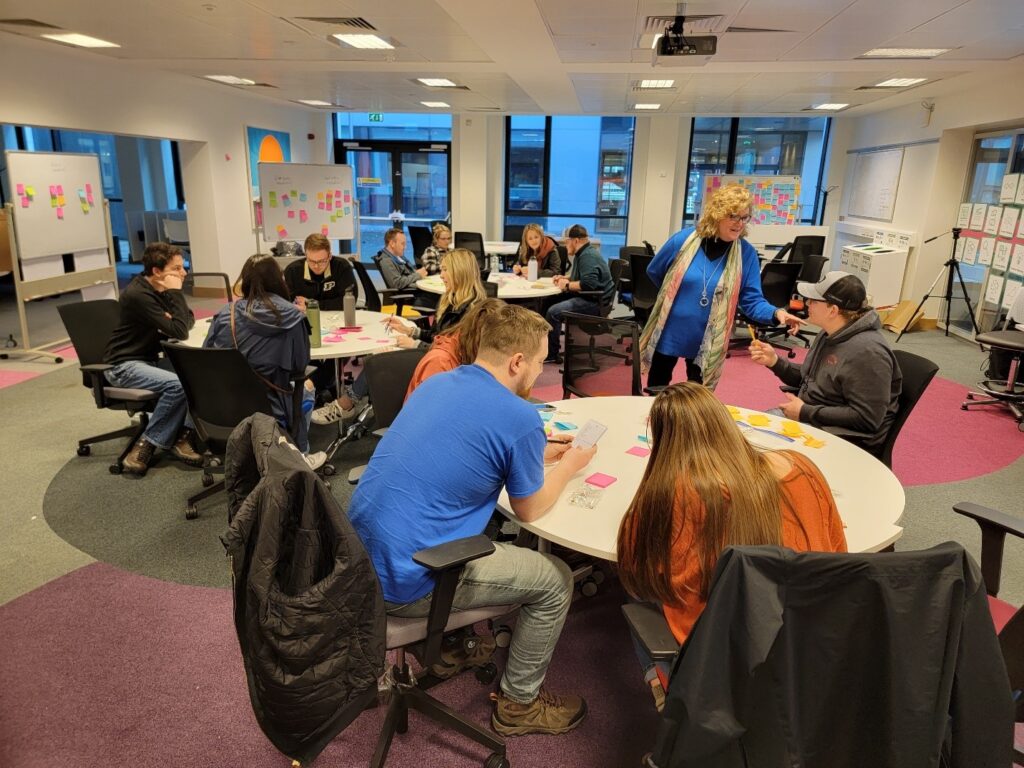
We arrived in Galway the next morning into the open arms and minds of the faculty and staff in the School of Geography, Archaeology & Irish Studies at the National University of Ireland – Galway. Dr. Marie Mahon was our lead partner and Mason’s advisor. After numerous Zoom calls over the last year, seeing her in person brought joy to my heart. A friendly face in an otherwise unfamiliar place. Dr. Maura Farrell, Dr. Shane Conway, and Dr. Brian Leonard (from UCD) joined us for discussions on rural development in Ireland. We also met four NUI-G graduate students (Brooke, Guillaume, Stacy, and Oisin) who were kind enough to serve as peer mentors to our Purdue undergraduates. Hearing about the priorities of the European Union and Irish governments was eye-opening. Here in the United States, we have a lot to learn from what is being implemented across the pond. Some of what we discussed is highlighted in the webinars archived on NUI Galway Rural Studies Centre YouTube Channel.
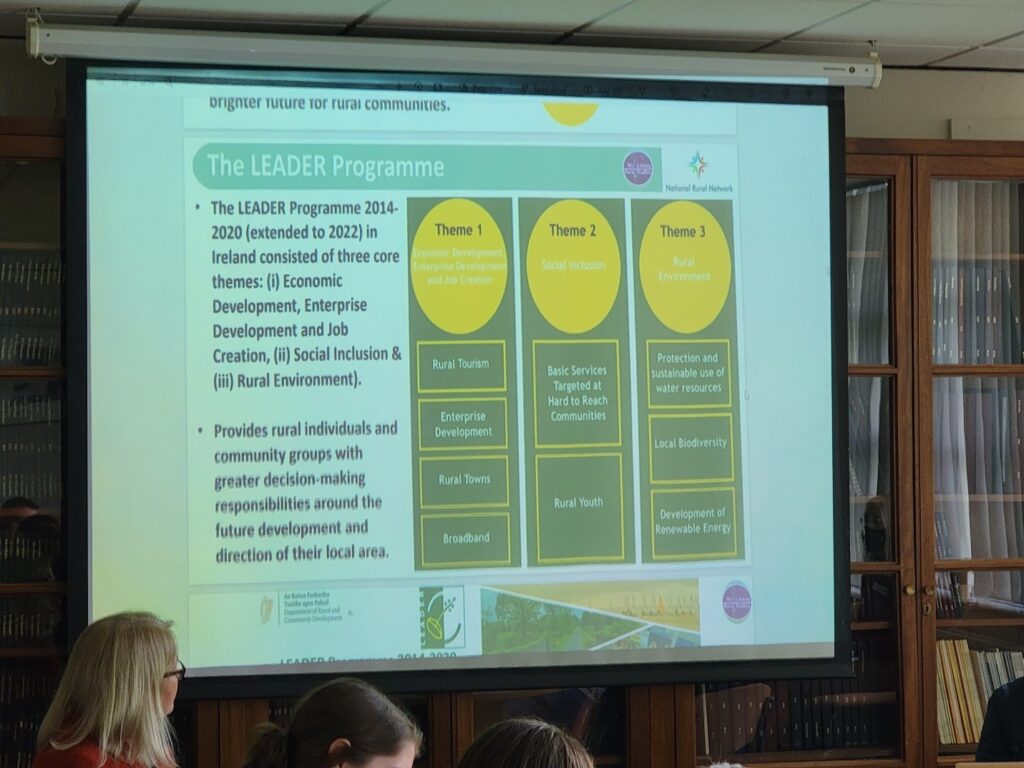
Dr. Brian Leonard discussed his experience working as a public official and how the lessons learned from his public service translated into his academic research and his worldview regarding rural development. Having real-world experience helped Brian better understand the opportunities and constraints facing people living in rural Ireland from a local and regional perspective. His academic work (with Drs. Farrell and Mahon) on-farm succession provides important insights into the decision-making that goes on at the family/firm-level and the interaction with community and policy.
Conversations with Brian led us in some interesting (and funny!) directions. Brian is originally (and proudly) from Co. Sligo. Many people in Ireland eventually find their way to Dublin for work. Brian is no exception. But! He has chosen to make his home in Galway. I sensed, talking to Brian and others, that once the Wild Atlantic Way (or other rural areas in Ireland) finds its way into your blood, heart, mind, etc., it is hard to let go.
At this point in our trip, the students were getting to know Ireland, making fast friends, and happy to set down some roots in Galway. As for Tamara and me, we were shaking our heads and laughing…in astonishment. After months upon months of planning with Marie and Mason, things were falling into place. And, as predicted prior to our departure, the unplanned events were miraculously tying everything together. Little did we know, it would start with Tamara’s sneakers.
Next month, I will discuss the incredible journey that we undertook in Co. Galway, Mayo, and Clare, along with the lessons learned.
